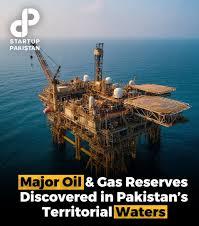Bangladesh’ interim leader Muhammad Yunus has work cut out to boost economy and jobs
4 min read
Muhammad Yunus, the founder of Grameen Bank and the father of microfinance, has been a pioneer in the field of social entrepreneurship. He believes that social business is the key to solving some of the world’s most pressing problems. In his vision, social business is a way to create a sustainable and equitable world where everyone has access to basic needs such as food, shelter, healthcare, and education. He envisions a world where businesses are not just driven by profit, but also by a social mission.
Definition of social business:
According to Yunus, social business is a non-loss, non-dividend company that is created to solve a social problem. Its aim is not to maximize profits, but to achieve a social objective such as poverty alleviation, healthcare, education, or environmental sustainability.
Examples of social business:
One of the most famous is Grameen Danone, a joint venture between Grameen Bank and Danone, a multinational food company. The company produces nutritious yogurt for low-income communities in Bangladesh and provides employment opportunities for local women.
Comparison with traditional charity:
Yunus believes that social business is a better alternative to traditional charity because it creates a sustainable solution to social problems. Social business, on the other hand, creates employment opportunities and empowers communities to become self-sufficient. It also encourages innovation and creativity by leveraging the skills and resources of entrepreneurs. Social business has the potential to solve some of the world’s most pressing problems and to empower marginalized communities.
Grameen Bank:
Grameen Bank is a microfinance organization founded by Muhammad Yunus, the father of social entrepreneurship. The bank provides small loans to poor individuals, particularly women, who are unable to access traditional banking services. This model has helped lift millions of people out of poverty and has been replicated in countries around the world.
Muhammad Yunus, the interim leader of Bangladesh, faces significant challenges in boosting the economy and creating jobs. His leadership comes at a critical time when the nation needs robust economic strategies and job creation initiatives. Yunus, known for his pioneering work in microfinance, brings a wealth of experience to his new role. However, the economic landscape of Bangladesh presents unique challenges that require innovative solutions. Bangladesh interim leader Muhammad Yunus has work cut out boost economy and jobs one of the primary challenges Yunus faces is addressing the high unemployment rate in Bangladesh. The country has a large youth population, many of whom are struggling to find employment. Creating job opportunities for this demographic is crucial for economic stability and growth. Yunus must implement policies that encourage entrepreneurship and support small and medium-sized enterprises (SMEs). These businesses are vital for job creation and economic diversification. Another significant challenge is improving the education and skills of the workforce. Many young people in Bangladesh lack the necessary skills to compete in the global job market. Yunus needs to focus on education reform and vocational training programs. These initiatives will equip the youth with the skills needed for modern industries and technologies. Enhancing the quality of education will also attract foreign investment, boosting the economy further. Yunus must also address the issue of poverty, which remains a significant problem in Bangladesh. Despite economic growth in recent years, many people still live below the poverty line. Implementing social welfare programs and providing financial support to the poorest communities is essential. Yunus’s experience in microfinance can play a crucial role here, offering small loans to help people start their businesses. Infrastructure development is another area that requires attention. Bangladesh’s infrastructure, including roads, bridges, and public transportation, needs significant improvements. Investing in infrastructure projects will create jobs and improve the overall business environment. Better infrastructure will also facilitate trade and attract foreign investors, contributing to economic growth. Yunus must also focus on improving the business climate in Bangladesh. Reducing bureaucratic red tape and corruption is essential for attracting both domestic and foreign investment. Streamlining business processes and ensuring transparency will encourage more entrepreneurs to start businesses. A favorable business environment will lead to increased economic activity and job creation. Environmental sustainability is another critical area for Yunus to address. Bangladesh is highly vulnerable to climate change, which poses significant risks to its economy. Implementing policies that promote sustainable development and renewable energy is crucial. Yunus should encourage green technologies and practices that protect the environment while creating jobs. Yunus’s leadership will also be tested in managing the country’s financial sector. Ensuring the stability of banks and financial institutions is vital for economic growth. Yunus must implement policies that promote financial inclusion and access to credit for all citizens. Strengthening the financial sector will support businesses and individuals, contributing to overall economic stability. Healthcare is another sector that requires attention. Bangladesh interim leader Muhammad Yunus has work cut out boost economy and jobs improving healthcare services and access is essential for a healthy and productive workforce. Yunus should focus on expanding healthcare infrastructure and ensuring affordable healthcare for all citizens. A healthy population is crucial for sustained economic growth and development. You can read more Here. Yunus must also address the issue of gender inequality in the workforce. Promoting gender equality and empowering women is essential for economic development. Implementing policies that support women’s participation in the workforce will lead to a more inclusive economy. Yunus should encourage initiatives that provide education and training for women, enabling them to contribute to the economy. In conclusion, Muhammad Yunus faces numerous challenges as the interim leader of Bangladesh. Boosting the economy and creating jobs requires a multifaceted approach. Yunus’s experience in microfinance and social entrepreneurship will be valuable in addressing these challenges. By focusing on education, infrastructure, business climate, environmental sustainability, financial inclusion, healthcare, and gender equality, Yunus can drive economic growth and job creation. His leadership will be crucial in navigating Bangladesh through this critical period and ensuring a prosperous future for all citizens.





